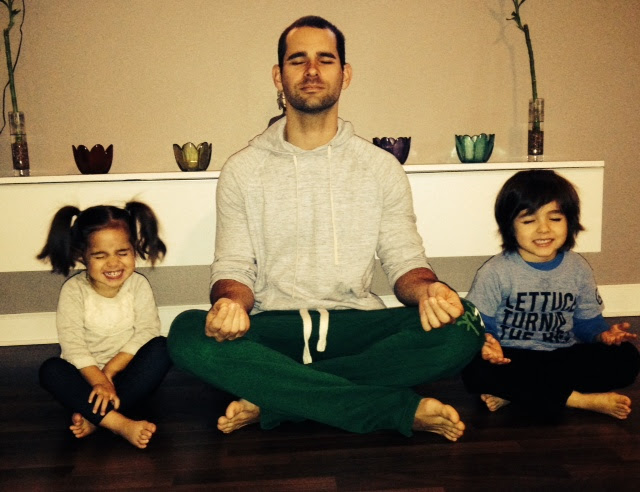“Do not dwell in the past, do not dream of the future, concentrate the mind on the present moment” – Possibly The Buddha
The votes are in. This February for My21DayX I’ll be meditating every day for 21 days. When I first found out that this was the next experiment, I thought, how boring. But as I began to research it, my anticipation skyrocketed.
If you join me, by the end of the 21 days, your life may be completely different – with hopes of being more relaxed, more optimistic and have developed a healthful habit (among a bunch of other possible positive outcomes).
We spend all day (and sometimes all night, too!) in a whirlwind of thought, never allowing our minds time to recover and rejuvenate.
I am by nature, a mover. For me, sitting still to meditate — or anything else for that matter — seems like an almost impossible feat. This is going to be a challenge for me. My wife says that I have a real problem paying attention so I’m looking forward to improving my mental focus. I’m also interested in reaching a higher consciousness, allowing me to contemplate fundamental and profound questions such as: What is the meaning of our existence? What is the meaning of death? Is there a higher power? Why doesn’t McDonalds sell hot dogs?
Some of this may sound woo woo, but hey, that’s why this is an experiment!
If you think you don’t have time for meditation, practicing it may make you more efficient. The time you spend on it may actually have a positive net gain on your time. According to Leo Babauta from ZenHabits, meditation is “one of the most simple habits to do — you can do it anywhere, any time, and it will always have immediate benefits.”
MEDITATIONS – IT’S ABOUT BEING PRESENT
Meditation is not about sitting quiet mindlessly. It’s quite the opposite – meditation is about quieting the mind, directing your thoughts (and emotions) in a more productive and peaceful direction and developing mindfulness of the present moment. Meditation is an awareness practice.
WHY HAVEN’T I BEEN DOING THIS BEFORE?
Meditation can be a powerful self-healing tool that can have profound implications on your physical and mental health. Its proposed benefits are impressive:
- decreased blood pressure
- lowered stress response
- relief or reduction in chronic pain
- increased compassion
- stronger immune function
- a boost in memory and positive emotions
- enhanced concentration
- improved sleep quality
While studying meditating monks, Dr. Richard Davidson, director of the Laboratory for Affective Neuroscience at the University of Wisconsin, found that brain circuitry is different in long-time meditators than it is in non-meditators. These monks had especially high activity in the regions of the brain that are associated with happiness and positivity. This revealed that brains can literally rewire themselves simply with the power of thought. New research shows that it only takes 3 weeks to create a new neural network in your brain. Associated with these structural changes are benefits like faster processing, better memory formation, and more integrated decision making.
A recent study found that, in less than two months, meditation was enough to upregulate several genes related to “energy metabolism, mitochondrial function, insulin secretion and telomere maintenance.” Likewise, genes related to inflammation and the body’s stress response were downregulated. There’s also some limited evidence linking meditation to life extension.
THE EXPERIMENT
Mediating in the morning and evening can be a great way to disconnect from your mental to-do list and calm your mind. You can do it for 1 minute or several hours. Here’s the breakdown of how I’m approaching it:
Week 1 – 5 minutes in morning and 5 minutes in evening
Week 2 – 10 minutes in morning and 10 minutes in evening
Week 3 – 20 minutes in morning and 20 minutes in evening
I’m going to try the different variations of meditation to see what works best for me.
TRACKING and QUANTIFICATION To ensure I stick to this every day, I’m going to use the Lift app. I encourage you to do the same so that we can keep each other accountable. I will also be measuring my Heart Rate Variability (HRV), a direct measurement of nervous system strength and stress levels, with the Sweetbeat iPhone app and this heart rate monitor. This will help quantify the changes from meditation.
QUESTIONS FOR YOU Do you practice meditation? If not, why? If so, what do you get out of it and how do you do it? What do you hope to get out of this experiment?
What questions do you have for me? Share this with one friend you think would benefit from meditation. Download the Free Meditation eGuide to get started.

Leave a Reply